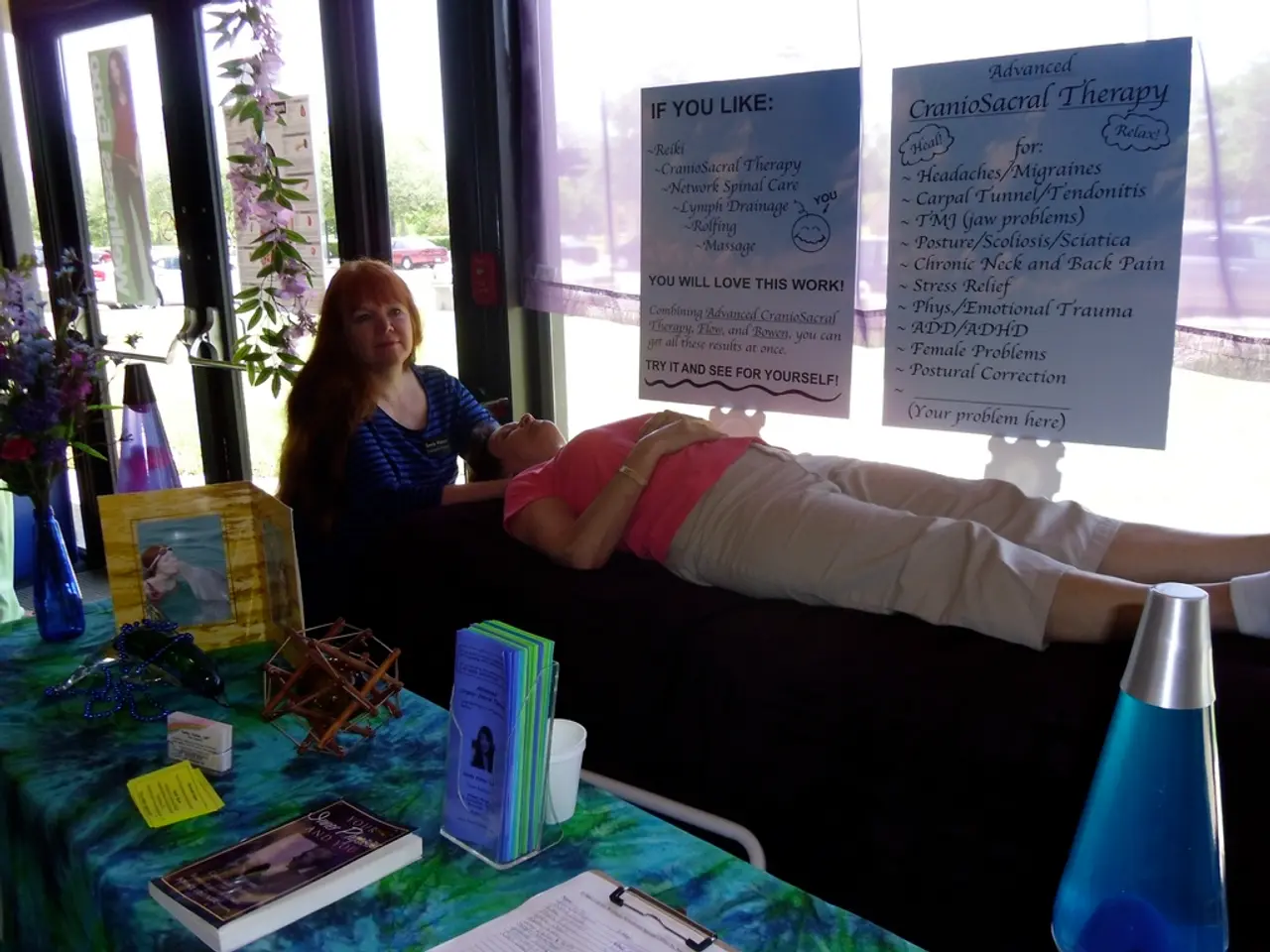Exploring the Path to Recovery: The Influence of Experienced Counselors
In the quest for emotional well-being, finding a supportive and skilled therapist is crucial. Here's a guide to help you navigate the process, based on key qualities and techniques to look for.
Key Qualities and Techniques to Look For
- Credentials and Qualifications: Ensure the therapist is licensed and certified to practice in your region, with the necessary education and training.
- Specialization: A therapist experienced in the specific issue you want to address often offers more effective care.
- Experience and Currency: Consider years of experience, current practice in your area of need, and ongoing training to stay updated on effective methods, especially for complex disorders.
- Empathy and Compassion: The therapist should be non-judgmental, genuinely caring, and culturally sensitive, creating a safe space to share feelings openly.
- Communication: Good listening skills, clear explanations, and feedback are essential for effective therapy.
- Supervision: Especially for complex conditions, ask whether the therapist has clinical supervision available to consult on challenging cases.
- Therapeutic Alliance: Research emphasizes that a strong, trusting relationship between you and the therapist is crucial to successful outcomes.
Tips for Building a Strong Therapeutic Relationship
- Schedule initial consultations: Use these to ask about the therapist’s approach, experience, and how they work with clients like you. Trust your instincts about safety and rapport.
- Give it time: It often takes several sessions (3–5) to evaluate if the therapist’s style and connection fit your needs.
- Reflect on progress: Regularly assess whether the therapy helps you move toward your goals, and if not, consider trying another therapist.
- Maintain open communication: Share feedback with your therapist about what works or doesn't, strengthening mutual understanding.
- Consider logistics: Factor in cost, location, and insurance coverage when choosing a therapist to ensure consistent attendance and engagement.
The Importance of Finding the Right Fit
This safe space allows individuals to share innermost fears and anxieties without the burden of shame or guilt. Understanding a therapist's approach, experience, and personality can empower you on your journey. Therapy can cultivate meaningful connections not only with oneself but also with the greater world.
The path to finding the right therapist may not be straightforward, but embracing the journey with an open heart and mind can lead to extraordinary outcomes. Seek a therapist who resonates with your values and whose therapeutic style aligns with your unique needs.
The author's personal therapy sessions led to a transformation in their mindset that rippled into their daily life and relationships. Therapy provides a safe space where vulnerabilities are met with understanding and compassion. Trained therapists use cognitive behavioral techniques, mindfulness and relaxation strategies, and interpersonal communication skills. Therapy is a collaborative venture, with the therapist encouraging the client's input and shaping sessions around their needs.
- The importance of finding the right therapist doesn't end at mental health; it extends to physical well-being as well, such as health-and-wellness and beauty therapies-and-treatments.
- In the realm of fashion, finding a reliable and competent stylist is akin to seeking a skilled therapist, as they both require trust and open communication to maintain a productive relationship.
- Likewise, in the field of photography, collaborating with a photographer who understands your vision and makes you feel comfortable can lead to captivating and self-expressive images, similar to the journey of self-discovery in therapy.
- The media industry also values empathy and compassion; a journalist who demonstrates cultural sensitivity and understands the complexities of their subjects fosters a safe space for stories to be shared openly, similar to the trusting therapeutic relationship.




